We are pleased to present our CTSP & Joint Fellows & Supported Affiliates for the 2018 year:

People 2018
Fellows @ CTSPCTSP Fellows
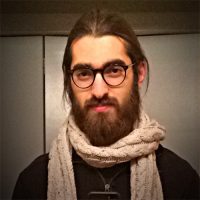
Maxinder Kanwal
Project: PeerMind: Towards Credible, Efficient Decision-Making in Democratic Communities
Maxinder Kanwal is a fourth-year undergraduate studying Electrical Engineering & Computer Science (EECS) and Applied Mathematics at UC Berkeley. Max became interested in the role technology can play to enhance democratic governance systems while he was a member of the Berkeley Student Cooperative (BSC). He wondered how to incorporate democratic ideals into a voting framework built upon statistical decision theory. Max now sits on the BSC’s Board of Directors and Internal Affairs Committee, where he works on turning theory into practice. Through this work, Max hopes to ultimately develop a mathematical perspective on how democracies can understand and support the needs of marginalized communities.
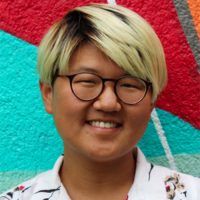
Jingyi Li
Project: PeerMind: Towards Credible, Efficient Decision-Making in Democratic Communities
Jingyi Li (they/them) is a recent EECS graduate from UC Berkeley and now a first year Ph.D. student at Stanford in the Human-Computer Interaction (HCI) Group. At Berkeley, Jingyi researched design tools advised by Prof. Bjoern Hartmann, and was a teaching assistant for computer graphics and user interface design courses. Before joining Stanford, Jingyi worked as an UI/UX designer at NVIDIA. Jingyi is broadly interested in creating computational creativity tools, and is excited to bring their user-centered design experience to PeerMind.
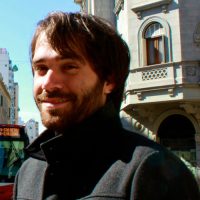
Mitar Milutinovic
Project: PeerMind: Towards Credible, Efficient Decision-Making in Democratic Communities
Mitar is a PhD student at UC Berkeley in fields of computer security and machine learning. Combining these two fields leads him to his interest in tools for secure and effective collective intelligence. He believes that simple online tools can bring people together to improve ways they collaborate, but that tools have to be designed in a way to facilitate such collaboration. PeerMind is to him such tool: in its core a simple discussion platform but which at the same time surfaces signals of preferences by users and aggregates those signals so that users can understand each other better, leading to stronger communities and better decision making.
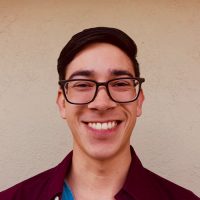
Santiago Molina
Project: “Democratizing” Technology: Expertise and Innovation in Genetic Engineering
Santiago J. Molina is a PhD Candidate in the Department of Sociology. His research generally focuses on the development of standards of practice and classification in scientific organizations. His dissertation explores how emerging gene-editing technologies become stable institutions through ethnographic research in two labs in the SF Bay Area.
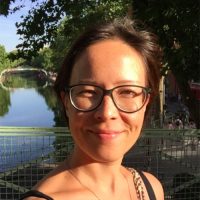
Angela Okune
Projects: Imagined and unimagined African tech users: A study of everyday practices and motivations of technology designers and researchers working “for good”, Building tech capacity: Investigating tech philanthropy training and education programs for the “skilling up” of youth
Angela is a doctoral student in the Anthropology Department at the University of California, Irvine (UCI), with an emphasis on Feminist Studies and Science and Technology Studies (STS). She works on questions of expertise and the politics of knowledge production in technology & development in Africa. Angela is a recipient of a 2016 Graduate Research Fellowship from the National Science Foundation. From 2010 – 2015, as a co-founder of the research department at iHub, Nairobi’s innovation hub for the tech community, Angela provided strategic guidance for the growth of tech research in Kenya.

Gordon Pherribo
Project: “Democratizing” Technology: Expertise and Innovation in Genetic Engineering
Gordon Pherribo is a PhD candidate in the Department of Plant & Microbial Biology. His work focuses on how nutrients are shared between bacteria in bacterial communities. More specifically, how the death of bacteria contributes to the release of nutrients into the surrounding environment as a public good. His other academic interests include science education, public engagement with science and the role of institutions in the production of scientific knowledge.
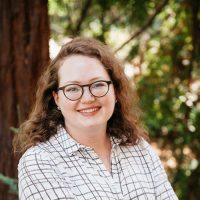
Elizabeth Resor
Elizabeth is a first year PhD in the School of Information. Her research interests include social media practices in East Africa, civic technology, critical cartography, and international development agencies and agendas. She has a masters in City Planning from MIT where she focused on International Development. Before coming to Berkeley she lived in Nairobi, Kenya for three and a half years where she worked with social media data and crowdsourcing to solve traffic and transport challenges. She designed and implemented a project with a local start-up company, Ma3Route, to crowdsource traffic accident data for Nairobi.
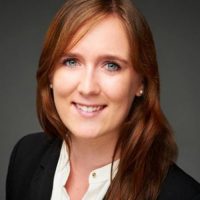
Carina Sauter
Project: Matri-Raksha: Digital Data Collection for Maternal and Perinatal Healthcare in Rural Nepal
Carina Sauter is a second-year Master’s student at the UC Berkeley School of Information. She has a background in business and has worked for Procter & Gamble and McKinsey & Company. She will lead the team through the design process and be responsible for aligning progress with stakeholders during the project. She is excited about the opportunity of supporting One Heart World-Wide’s mission to deliver better care to mothers around the world and hopes to get a better understanding of designing for different cultures and environments as well as working in a non-profit context.
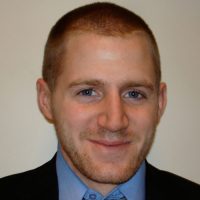
Dan Sholler
Project: Developing U.S. Policy Recommendations for Open Science
Dan is a postdoctoral fellow with the rOpenSci project at the University of California, Berkeley. He studies the management of digital infrastructures, or the social and technical arrangements that facilitate data collection, sharing, and use in various industries. His prior research focused on how the introduction of infrastructure-supporting electronic medical records shaped healthcare professionals’ practices and perceptions of how their work was managed. His current work investigates how organizations are developing governance strategies for open science infrastructures, focusing on how governance strategies relate to scientists’ embrace of and resistance to open science practices and technologies.

Harman Shah Singh
Project: Matri-Raksha: Digital Data Collection for Maternal and Perinatal Healthcare in Rural Nepal
Harman Shah Singh is a second-year Master’s student at the UC Berkeley School of Information. He completed his Bachelors in Computer Science and worked as a Data Science Consultant in India, before coming to Berkeley. With a keen interest and prior experience in data engineering, machine learning and statistical techniques, he is inclined towards using quantitative methodologies in strategic decision making. Harman is committed to using his data science and business strategy skills to bring about a positive change in society. He is interested in contributing to the CTSP community by supporting the CTSP initiatives at UC Berkeley, and expanding the outreach of CTSP by aligning students with their vision and goals.

Steve Trush
Project: Matri-Raksha: Digital Data Collection for Maternal and Perinatal Healthcare in Rural Nepal
Steve Trush is a second-year Master’s student at the UC Berkeley School of Information. He has several years of experience working to address communication challenges for marginalized populations within Central Asia. Steve recently held a research fellowship through the United States Agency for International Development (USAID) where he evaluated and designed agent-based data collection networks in rural areas of India and Myanmar with limited connectivity. Steve’s current work is focused on evaluating and designing socio-technical information systems to support human rights, including healthcare access, in resource-constrained contexts.
Joint Fellows
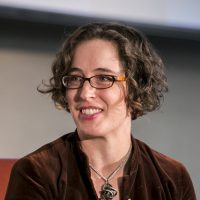
Morgan Ames
Project: Unpacking the Black Box of Machine Learning Processes
Morgan G. Ames is a lecturer and postdoctoral scholar at U.C. Berkeley. Morgan’s research explores the role of utopianism, especially the imaginary of the “technical child,” in the technology world. Her book, “The Charisma Machine: The Life, Death, and Legacy of One Laptop per Child,” uses archival and ethnographic research to trace the motivations behind OLPC and the cultural politics of a model project in Paraguay. Morgan’s new project explores discourses around childhood, technical skill, and diversity in the Minecraft community and Silicon Valley more broadly. She received her Ph.D. in Communication (minoring in Anthropology) from Stanford in 2013.
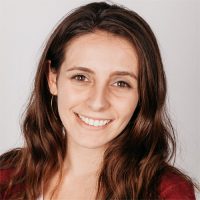
Michelle Carney
Project: MLUX SF: Designing and using Data Science Ethically
Michelle Carney is a Master’s candidate at the School of Information, where she studies the intersection of Data Science and User Experience. Before graduate school, Michelle worked as a UX Designer and Researcher, and researched computational neuroscience at UC Berkeley as an undergraduate. She came to the I School to combine her two interests in Data Science and UX, and has been able to pursue her interests through her various projects and the Berkeley Center for New Media certificate. While in grad school, she saw a need in the professional field for a community around the subject of UX and Machine Learning/Data Science, so she began organizing MLUX SF in August 2017, which has now grown to over 800 members.
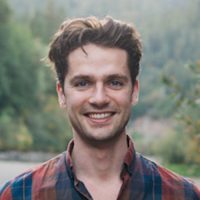
Roel Dobbe
Project: Unpacking the Black Box of Machine Learning Processes
Roel Dobbe is PhD Candidate in the area of Control, Intelligent Systems & Energy in the Department of Electrical Engineering & Computer Sciences at UC Berkeley. Roel’s research addresses the development and integration of data-driven methodologies, combining optimization, machine learning and control theory for monitoring and control of safety-critical systems, including energy & power systems and cancer diagnosis and treatment. Roel also studies the social and political implications of automation and is interested in building capacity among engineers to engage more closely with policy, law and social sciences.
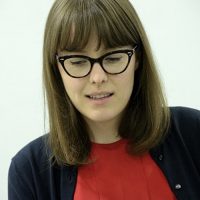
Sarah Fox
Project: Menstrual Biosensing Survival Guide
Sarah Fox is a PhD candidate in the Tactile and Tactical Design Lab at the University of Washington, as well as a Visiting Scholar in the Hybrid Ecologies Lab at the University of California, Berkeley’s Department of Electrical Engineering and Computer Sciences. Her research investigates the social and political circumstances of technology development, with an emphasis on practices at the periphery of industrial production, from feminist making and hacking to collaborative development of menstrual infrastructure. Her work has earned awards in leading computing venues including ACM CSCW, CHI, and DIS, and has been featured in special issues of the Journal of Peer Production and New Media and Society. She holds a Master’s degree in Digital Media from the Georgia Institute of Technology, where she was a part of the Intel Science and Technology Center for Social Computing. She has worked in design research at Microsoft Research, Google, and Intel Labs.
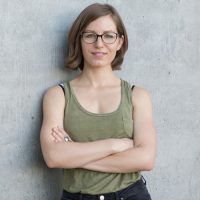
Leah Horgan
Leah Horgan is a doctoral student in the Informatics Department at University of California, Irvine (UCI) with a focus on Science and Technology Studies (STS) and Design. Currently, Leah’s research centers on data-driven governance, design, predictive analytics, innovation culture, and related critical and organizational theory as explored through a participant observation study with the Los Angeles data team. Previously, Leah studied for two years in the Media Design MFA Program at Art Center College of Design. Prior to graduate studies, Leah worked on design, communications, and executive assistance for three years with MIT’s Pov
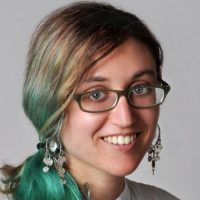
Noura Howell
Project: Menstrual Biosensing Survival Guide
Noura Howell is a PhD student at the School of Information advised by Professor Kimiko Ryokai, and a member of the BioSENSE research group. Blending design research and critical technical practice, her work investigates how emotional biosensory data influence conceptions of self, wellness, and narratives of self-improvement or optimization. She designs, builds, and deploys functional biosensing prototypes to study experiences and interpretations of these artifacts, exploring alternatives to existing emotional biosensing technologies. She has worked with Google ATAP, Intel Labs, the MIT Media Lab, The Echo Nest, and Microsoft, combining software engineering and human centered design.
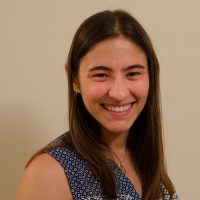
Anne Jonas
Projects: Building tech capacity: Investigating tech philanthropy training and education programs for the “skilling up” of youth; Technology Design and Appropriation in Support of the Kashaya and Manchester Bands of Pomo Indians
Anne Jonas is a third year PhD student at the UC Berkeley School of Information, with a designated emphasis in Science and Technology Studies. Her current research projects focus on the interaction of school digitization with long-standing patterns of educational inequality in the U.S. and on the discriminatory implications of regional blocking by corporate web services. Previously, Anne worked as the Program Manager at the Barnard Center for Research on Women, and as a Project Director at the Participatory Culture Foundation. She is a research grantee of the Center for Long-Term Cybersecurity and a member of the Algorithmic Fairness and Opacity Working Group.
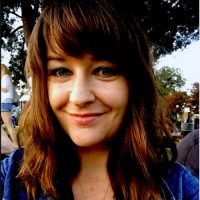
Kate M. Miltner
Project: Everyone Can Code? Race, Gender, and the American Learn to Code Discourse
Kate Miltner is a PhD Candidate at the USC Annenberg School for Communication and Journalism and a Visiting Student Researcher at the University of California Berkeley Center for Science, Technology, Medicine, & Society. She has a BA in English (cum laude) from Barnard College, Columbia University, and a MSc in Media and Communications (Merit) from the London School of Economics and Political Science. Her research focuses on technology, identity, and power, and she has had research appointments at Twitter and Microsoft Research New England. Her work has been published in the peer-reviewed journals Science, Technology and Human Values, Social Media & Society, International Journal of Communication, First Monday, and Feminist Media Studies; it has also been featured in Wired, Slate, The Atlantic, The Guardian, Time, and the BBC.
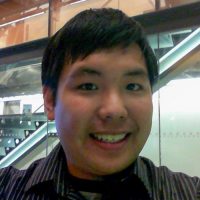
Richmond Wong
Project: Menstrual Biosensing Survival Guide
Richmond Wong is a PhD student at the UC Berkeley School of Information in the BioSENSE group, working with Professor Deirdre Mulligan. He studies how design methods and approaches can be used to proactively raise privacy and other social values-related concerns in technology design, and to develop technologies in ways that are cognizant of these issues. He uses approaches from science & technology studies, human computer interaction, and speculative and critical design, including design-based and qualitative methods. He is also a recipient of the NSF Graduate Research Fellowship in Computer & Information Science & Eng
Supported Affiliates
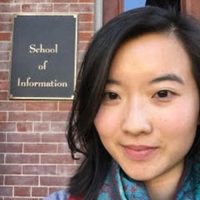
Michelle Chen
Project: Technology Design and Appropriation in Support of the Kashaya and Manchester Bands of Pomo Indians
Michelle is a first year MIMS student who brings skills in UX research – from qualitative interviewing to usability testing, and interaction design. She works as a Digital Communications Assistant at the Berkeley Art Museum and Pacific Film Archive and previously worked as a Quality Assurance Engineer. She holds a B.A. in Cognitive Science from Carleton College.
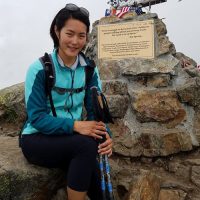
Anna Cho
Projects: ARWave: Promoting Disaster Preparedness through Personalization; Technology Design and Appropriation in Support of the Kashaya and Manchester Bands of Pomo Indians
I am a second-year graduate student at the School of Information where I am focusing on data science and product management. Before coming to UC Berkeley, I received a Fulbright Fellowship to teach English in a South Korean high school where I became interested in designing better learning experiences and harnessing data to create academic success. I then went on to work in philanthropy where I had the opportunity to work even more closely with data as the leader of a data archiving project. At the School of Information, I have learned to harness the power of data to gain valuable insights that lead to better product design. In particular, I specialize in machine learning and information visualization.
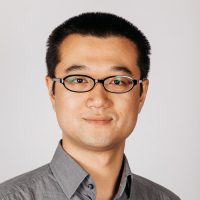
Xuancheng Fan
Project: ARWave: Promoting Disaster Preparedness through Personalization
I am a second-year graduate student at the School of Information. Before graduate school, I worked as a system/storage engineer for three years and as manager for two years. At UC Berkeley, I am focusing on data science and machine learning, especially in the application of natural language processing and computer vision. The diverse experience allows me to gain a strong understanding of the technology itself and the business/customer needs and expectations. For this project, I will be responsible for implementing the computer vision and relevant technology. I am excited to combine machine learning, computer vision, and 3D-modeling to solve a pressing social issue.
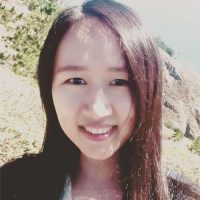
Safei (Fay) Gu
Project: ARWave: Promoting Disaster Preparedness through Personalization
With wide industry experience in design and technology, I have over three years’ experience in design, with a focus on UX, visual and product thinking. I love to create more usable, logical, and elegant interactions and to better organize user flows for a streamlined user experience. Graduated from UC Berkeley School of Information, I focus on how to leverage technology, business, and design to shape future cross-platform products and UX paradigms.
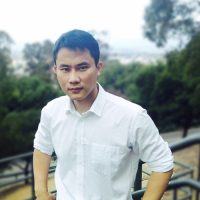
Leon Li
Project: ARWave: Promoting Disaster Preparedness through Personalization
I have been working as a software engineer and systems engineer in the IT industry for eight years, ultimately gaining extensive experiences in software development, cyber security, and systems architecture. Now I am learning machine learning in Berkeley. I am passionate about exploring vital insights from the analysis of big data in distributed environment, mining and visualizing hidden gems located in large sets of data, and build systems to make unknown known.
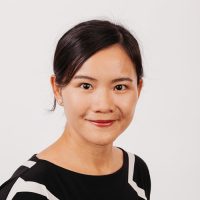
Jolly (Shuting) Liang
Project: ARWave: Promoting Disaster Preparedness through Personalization
As a former analyst in a consulting firm, I feel fortunate to have been given insight into business environment, challenges and decision making processes. My passion for solving challenges excites me about software development as means to helping companies and people deal with them in a more effective, comfortable and informative way. I am currently studying Information Management and Systems at UC Berkeley and love diving into new technologies from frontend to backend stacks, big data and infrastructure.
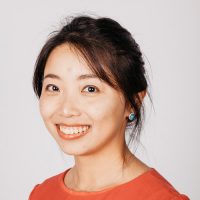
Yifei Liu
Project: Technology Design and Appropriation in Support of the Kashaya and Manchester Bands of Pomo Indians
Yifei is a second year MIMS student with a focus on Human Centered Interaction. She is a passionate designer and communicator with 5+ years of user-centered design and new media experience. She led several projects on website design and development, graphic design, and media campaigns at the International Food Policy Research Institute (IFPRI), as well as pro bono side projects, designing logos and infographics and developing websites for startups and NGOs. She previously worked for various media outlets in Beijing and Madison, WI, and received a master’s degree and a bachelor’s degree in Journalism and Mass Communications from the University of Wisconsin-Madison and Renmin University of China respectively.

Sophie Park
Project: ARWave: Promoting Disaster Preparedness through Personalization
My passion is experimenting with emerging technologies to make it more usable for greater user benefit and wider market adoption. Working at the intersection of design and product management, I wear many hats, including those of UX researcher, UX designer, storyteller, and product manager. In addition to past experience as a PM for IoT and a designer for fintech, I am currently deepening my expertise at School of Information studying user experience in new mediums.
Banner Photo Credit: “UC Berkeley South Hall” by Anand Rajagopal for I School IMSA is licensed under CC BY 2.0
